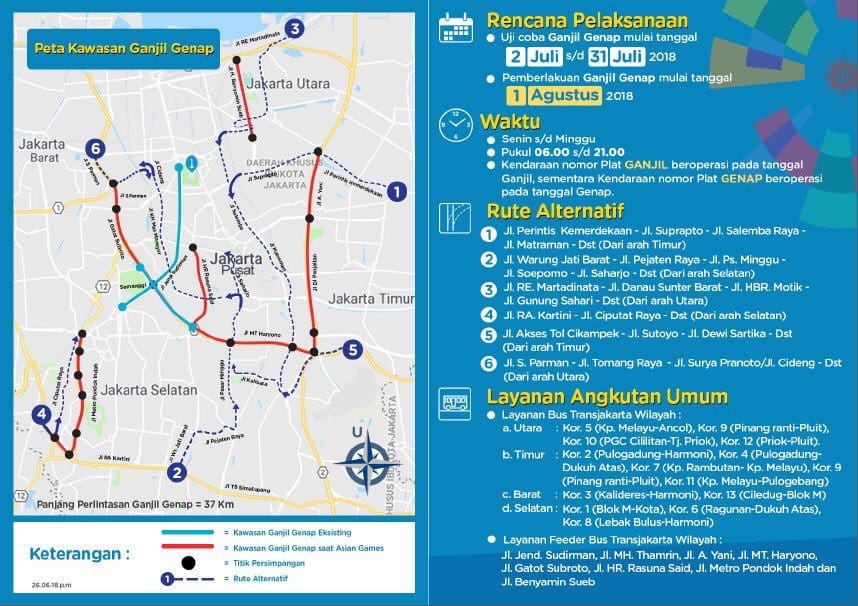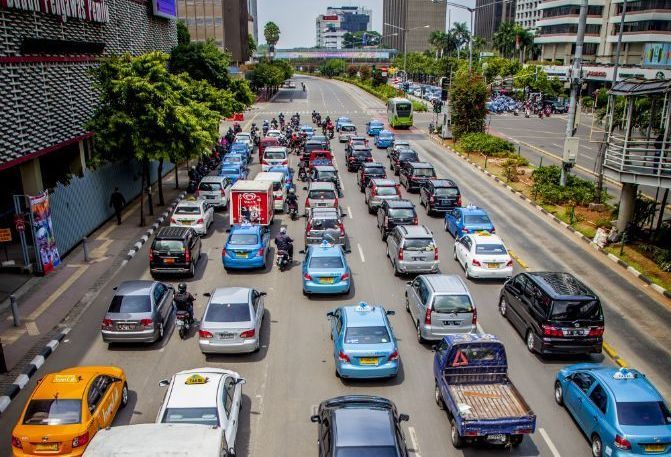The trial period of the odd-even traffic rule expansion in Jakarta is about to end and violations of the regulation within the new zones will become a finable offense starting Wednesday (Aug 1).
Odd-even violators during the month-long trial period have only been given verbal warnings by traffic police, but in a couple of days, a maximum fine of IDR500K (US$34.69) will apply (the same price as paid by violators of the previously existing odd-even zones).
“That is the rule. There is no more leniency for violators,” Jakarta Traffic Police Law Enforcement Head Budiyanto told Kompas.
The odd-even rule — which only allows vehicles with odd-numbered plates to use certain major roads during rush hours on odd calendar dates and vice-versa — was expanded to include more major roads in the capital in a bid to reduce congestion during the upcoming Asian Games.
This map below, from the Jakarta Transportation Agency, details exactly which roads are now covered by the odd-even rule. The light blue lines represent the roads where the odd-even rule was previously enforced, while the red lines represent the new additions and the blue dotted lines represent suggested alternate routes (be warned: they have reportedly been more jammed than usual).

The biggest expansion stretches all the way from Jalan S. Parman in West Jakarta, through Gatot Subroto, M.T. Haryono, D.I. Panjaitan, Jenderal Ahmad Yani up to Cempaka Putih in Central Jakarta, measuring close to 22km.
The other three points of expansion are: South Jakarta’s Jalan Arteri Pondok Indah — Kebayoran Baru, Jalan H.R. Rasuna Said, and Central Jakarta’s Jalan Benyamin Sueb, Kemayoran.
In addition, under the expansion, the odd-even rule is now be enforced for 15 hours every workday, from 6am to 9pm. This is much longer than the 7am-10am and 4pm-8pm rush hour windows prior to the expansion.
The Jakarta Provincial Government has not decided on whether or not the expansion will still apply after the Asian Games concludes on September 2, but there has been talk that they are considering making it permanent beyond the Games. The government claims that the expansion increased traffic speed in the zones by 12% and improved air quality in the city due to an increase in citizens using public transportation.




